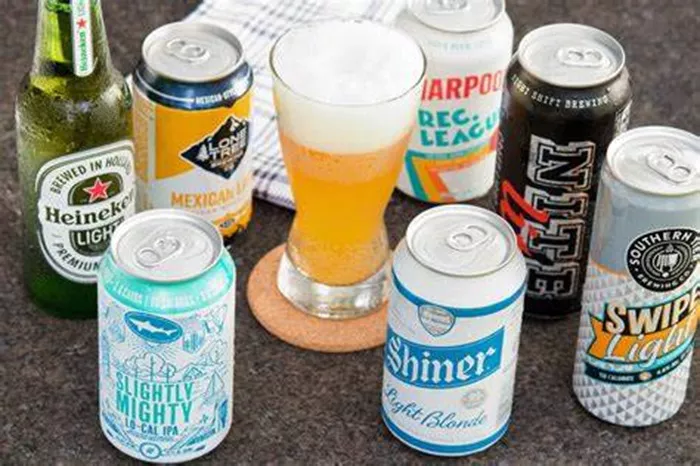Washington State stands as a beacon in America’s craft beer landscape, boasting a dynamic network of over 400 licensed breweries, a passionate community of brewers and drinkers, and a rich spectrum of locally inspired flavors. From sipping a citrus-infused IPA in Seattle’s Ballard neighborhood to sampling a bold porter in a Spokane taproom, beer in Washington is not merely a beverage—it is a cultural experience.
Yet, as the popularity and complexity of the state’s craft brews continue to rise, so does the importance of fostering a culture of responsible drinking. Advocates emphasize that promoting moderation is not about curbing enjoyment—it is essential to preserving the vibrancy, inclusivity, and sustainability of Washington’s beloved beer scene.
Understanding the Standard Pour
Central to responsible consumption is the concept of the standard drink. In the United States, one standard drink contains approximately 14 grams (0.6 ounces) of pure alcohol. This typically translates to:
- 12 ounces of beer at 5% ABV
- 5 ounces of wine at 12% ABV
- 1.5 ounces of distilled spirits at 40% ABV
However, many craft offerings deviate significantly from this baseline. For example, a 16-ounce pour of a 9% double IPA equates to nearly two standard drinks. Without awareness of alcohol content and serving sizes, even experienced drinkers can unknowingly exceed safe limits.
Enjoyment Through Intention
Responsible drinking emphasizes quality over quantity. This approach encourages individuals to savor the distinct characteristics of a small-batch ale or the nuanced bitterness of a dry-hopped lager—without overindulgence. Key principles include:
- Recognizing alcohol content
- Monitoring personal limits
- Understanding how alcohol affects mood and decision-making
- Choosing pacing and hydration over rapid consumption
Far from diminishing the experience, this method enhances enjoyment while safeguarding health and social well-being.
Health Implications and Long-Term Benefits
Moderation offers more than just the avoidance of hangovers. According to the Centers for Disease Control and Prevention (CDC), limiting alcohol intake can reduce the risk of liver disease, alcohol dependence, and high blood pressure. The CDC defines moderate drinking as:
- Up to one drink per day for women
- Up to two drinks per day for men
This guideline reflects daily consumption, not an average spread over a week. As new studies continue to investigate the effects of alcohol on brain function and sleep quality, experts stress the importance of mindfulness with every pour.
The Role of Breweries and Taprooms
Many Washington breweries are leading the charge by implementing responsible service practices. These efforts include:
- Clearly marking ABV on menus
- Offering smaller pours and tasting flights
- Providing food pairings and water stations
- Training staff to identify signs of overconsumption
- Supplying non-alcoholic options and supporting designated drivers
Some breweries also collaborate with ride-share services and provide discounts for sober patrons, reinforcing a commitment to community welfare.
Festival Season: A Test of Moderation
Beer festivals are a cornerstone of Washington’s craft culture, but they can also be high-risk environments for overconsumption. To promote safer experiences, attendees are encouraged to:
- Begin with lower-ABV selections
- Track their drinks, even sample-sized ones
- Hydrate consistently
- Eat regularly throughout the event
- Establish a safe ride home
- Use the buddy system to monitor each other’s well-being
Many festivals already support these practices by offering free water, non-alcoholic options, and wristbands for designated drivers.
Social Responsibility and Community Culture
Taprooms across Washington are known for fostering camaraderie and conversation. Maintaining this atmosphere requires collective responsibility. Best practices include:
- Encouraging hydration and pacing among friends
- Avoiding peer pressure to overindulge
- Stepping in if someone shows signs of intoxication
- Respecting those who opt for non-alcoholic beverages
Responsible drinking protects the social spaces where community thrives and ensures that everyone can safely enjoy the atmosphere.
Embracing the Non-Alcoholic Movement
The demand for alcohol-free options is on the rise, and Washington brewers are responding with flavorful, hop-forward alternatives that preserve the spirit of craft beer. These offerings appeal not just to those abstaining entirely, but to those seeking balance and inclusion.
This trend promotes a broader understanding of beer culture—one that values participation over intoxication.
Developing a Personal Drinking Code
Given the varying effects of alcohol based on body weight, gender, and metabolism, individual drinking guidelines can be more effective than universal rules. Experts recommend creating a personal conduct code, such as:
- Setting a maximum drink limit
- Avoiding alcohol under stress or fatigue
- Ensuring food and hydration accompany drinking
- Committing to never drive under the influence
Writing down these guidelines, even informally, helps reinforce intentions and promote accountability.
Setting an Example for Future Generations
With the rise of craft beer visibility, adults—especially parents—play a critical role in shaping future attitudes. By modeling moderate, intentional consumption, they help young observers understand the value of balance and respect within drinking culture.
Accessing Support and Resources
For those facing challenges with alcohol, several resources are available in Washington:
- Washington Recovery Help Line: 1-866-789-1511
- SAMHSA National Helpline: 1-800-662-HELP (4357)
- Local Alcoholics Anonymous and SMART Recovery chapters
- Peer groups such as Moderation Management or Sober Curious communities
A Culture Worth Protecting
Washington’s craft beer scene is renowned not just for its innovation, but for its sense of community. Safeguarding this culture requires intentional action from everyone—brewers, drinkers, and event organizers alike.
Drinking responsibly is not a limitation. It is a celebration of the craft, the connection, and the care that defines Washington’s beer community. By lifting each glass with awareness, drinkers contribute to a culture that can be savored now and sustained for generations to come.
You Might Be Interested In:


